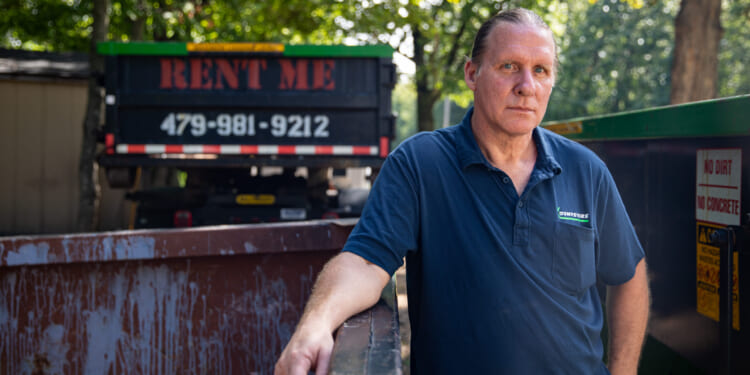Steven Hedrick’s business filled an important niche in his Northwest Arkansas community by renting dumpsters to construction projects and hauling away trash — until the local government stepped in and banned him from working there. City of Holiday Island leaders instead assigned all garbage-hauling work to a single company, outlawing competition for supplemental services from businesses like Steven’s.
That’s an illegal government-backed monopoly, and on Thursday Goldwater Institute attorneys argued before the Arkansas Supreme Court in support of Steven’s right to earn a living. The Arkansas Constitution explicitly prohibits the government from granting monopolies, and it also prohibits the government from depriving an individual of life, liberty, and property without due process of law. Ultimately, the government should not be in the business of putting actual businesses like Steven’s out of work.
The Arkansas Supreme Court is the sixth state high court where the Goldwater Institute has defended constitutional rights. Goldwater will always fight to protect Americans’ freedom to earn an honest living in the profession of their choice.
Read more here.
There remains an “epidemic of self-censorship on college campuses,” where students and faculty are afraid of professional or social ruin for speaking freely. That is the warning of free-speech advocate Nico Perrino in the latest episode of the Goldwater Institute’s new Dismantling DEI podcast. Listen here.
Perrino, executive vice president of the Foundation for Individual Rights and Expression, or FIRE, explains how diversity, equity, and inclusion (DEI) programs continue to erode freedom of thought on campus. And he notes how speech that was once protected has become a liability in the classroom, with sprawling university bureaucracies tasked with enforcing conformity and punishing dissent.
But with schools such as Harvard and MIT beginning to roll back mandatory DEI statements, Perrino has hope that the mission of higher education can return to its roots: “preservation, dissemination, and creation of knowledge.”
Watch Dismantling DEI in its entirety here, or listen on Apple Podcasts and Spotify.
Bishoy Fam is a highly qualified attorney who scored high enough on the Uniform Bar Exam to qualify for admission to the Tennessee Bar Association. But when he applied to become licensed in the state, Tennessee’s licensing bureaucrats turned him down. Their reason: Bishoy went to law school in Scotland.
In a victory for the right to earn a living, the Tennessee Supreme Court ruled recently that the government cannot deny Bishoy’s admission to the bar just because he went to law school in another country. The Goldwater Institute and the Beacon Center of Tennessee filed a brief in support of Bishoy’s right to practice in the state.
Ensuring that lawyers are well educated is important, but in Bishoy’s case the licensing board failed to take his full education into account. The board also ignored any serious consideration of whether denying Bishoy the right to practice in Tennessee — enshrined in the state’s Right to Earn a Living Act — was necessary to protect residents.










